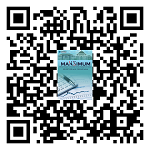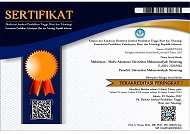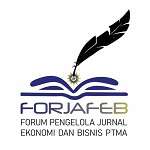Financial Statement Fraud and the Fraud Pentagon Theory: Evidence from Indonesia’s Public Sector
(1) Universitas Muhammadiyah Semarang
(2) Universitas Muhammadiyah Semarang
(*) Corresponding Author
Abstract
This study investigates the determinants of financial statement fraud in Indonesian state-owned enterprises (SOEs) using the Fraud Pentagon Theory, which extends the traditional fraud triangle by incorporating five dimensions: pressure, opportunity, rationalization, capability, and arrogance. Each element is proxied respectively by financial stability, the proportion of independent commissioners, auditor turnover, board of directors turnover, and CEO profile picture. The analysis is based on panel data from 25 SOEs listed on the Indonesia Stock Exchange (IDX) during 2019–2023, with fraud measured using the F-Score model. Panel regression results show that financial stability significantly increases the likelihood of fraudulent reporting, indicating that financial pressure is a key driver of earnings manipulation. In contrast, the other variables do not exhibit significant effects, suggesting that conventional governance and image-based proxies may have limited predictive value in this context. These findings offer empirical support for the Fraud Pentagon framework in the public sector and highlight the need for more targeted fraud detection strategies beyond traditional governance indicators.
Keywords
Full Text:
PDFReferences
Association of Certified Fraud Examiner Indonesia. (2022). Association of Certified Fraud Examiner Indonesia.
Association of Certified Fraud Examiners Indonesia. (2019). Survei Fraud Indonesia 2019. Indonesia Chapter #111, 53(9), 1–76. https://acfe-indonesia.or.id/survei-fraud-indonesia/
Aulia, A. P. N., & Budiwitjaksono, G. S. (2020). Analisa teori fraud pentagon sebagai pendeteksi kecurangan pada laporan keuangan. Journal of Economics, Business, & Accountancy Ventura, 22(3). https://doi.org/10.14414/jebav.v22i3.1788
Budi Yanti, H., Mayangsari, S., Wiyono, S., Noor, I. N., Siregar, M., & Desiani, I. (2023). Prediction Of Financial Reporting Fraud With Crowe’s Fraud Pentagon Model. Media Riset Akuntansi, Auditing & Informasi, 23(1), 183–202. https://doi.org/10.25105/mraai.v23i1.17293
Cressey, D. (1953). Other people’s money, dalam: “The Internal Auditor as Fraud buster, Hillison, William. et. al.1999 . Managerial Auditing Journal, MCB University Press.
Crowe Horwarth. (2012). The Mind Behind The Fraudsters Crime. Key Behavioral and Environmental Element.
Dechow, P. M., Ge, W., Larson, C. R., & Sloan, R. G. (2011). Predicting Material Accounting Misstatements. Contemporary Accounting Research, 28(1), 17–82. https://doi.org/10.1111/j.1911-3846.2010.01041.x
Dwi Maryadi, A., Puspa Midiastuty, P., Suranta, E., & Robiansyah, A. (2020). Pengaruh fraud pentagon dalam mendeteksi fraudulent financial reporting. Jurnal Akuntansi, Keuangan, Dan Manajemen, 2(1), 13–25. https://doi.org/10.35912/jakman.v2i1.104
Farida, A. L., Wahyuni, D., & Fariska, P. (2022). Determinant of the Fraud Pentagon Theory for Fraudulence Financial Reporting.
Gansui, Joseph Philip Kambey, & Nikolas Fajar Wuryaningrat. (2023). Analisis Fraud Pentagon Dalam Mendeteksi Kecurangan Pelaporan Keuangan Pada Perusahaan Manufaktur. Jurnal Ekonomi, Kependidikan, Manajemen, Dan Akuntansi, 1, No. 2, 9–17.
Ghaisani, A. A., & Supatmi, S. (2022). Pendeteksian Kecurangan Pelaporan Keuangan menggunakan Model Fraud Diamond. Portofolio: Jurnal Ekonomi, Bisnis, Manajemen, Dan Akuntansi, 17(2), 90–109. https://doi.org/10.54783/portofolio.v17i2.205
Hambrick, & Mason, (1984). (1984). Upper echelons: The organization as a reflection of its top managers. The Academy of Management Review, 9(2), 193–206. https://doi.org/10.2307/258434
Harman, S. A., & Bernawati, Y. (2020). Determinant of Financial Statement Fraud: Fraud Pentagon Perspective in Manufacturing Companies Sendi. Elementary Education Online, 2020; 19 (4): Pp. 628-638, 19(4), 628–638. https://doi.org/10.17051/ilkonline.2020.04.166
Hastuti, P. M. D., Rahayu, S., & Pratiwi, E. C. (2023). Fraud Pentagon Theory Terhadap Kecurangan Laporan Keuangan di Sektor Perusahaan Manufaktur. Jurnal Ekobistek, 12(2), 614–621. https://doi.org/10.35134/ekobistek.v12i2.602
Hidayah, E., Saptarini, G., & Devi. (2019). Pentagon Fraud Analysis in Detecting Potential Financial Statement Fraud of Banking Companies in Indonesia.
Irmawati, F. (2022). Testing The Fraud Pentagon Theory On Fraudulent Financial Reporting In The Banking Sector Indonesia 2016-2020. 18, 235–247. http://dx.doi.org/10.24217
Jensen., & Meckling. (1976). Jensen and Meckling. The Corporate Financiers, 3, 305–360. https://doi.org/10.1057/9781137341280.0038
Koharudin, A., & Januarti, I. (2021). Lack of Financial Reporting Using Crowe’s Fraud Pentagon Theory. Jurnal Dinamika Akuntansi, 13(2), 148–157. https://doi.org/10.15294/jda.v13i2.28602
Kurniawan, Hutadjulu, Y. L., & Simanjuntak, Ma. (2020). Pengaruh manajemen laba dan corporate governance terhadap kecurangan laporan keuangan. In Jurnal Akuntansi & Keuangan Daerah (Vol. 15, Issue 1).
Permatasari, D., & Laila, U. (2021). Deteksi Kecurangan Laporan Keuangan Dengan Analisis Fraud Diamond Di Perusahaan Manufaktur. Akuntabilitas, 15(2), 241–262. https://doi.org/10.29259/ja.v15i2.13025
Rachman, M. N., Suhendro, S., & Azhar, R. (2023). Analysis of factors affecting fraudulent financial reporting in fraud pentagon perspective. Asian Journal of Economics and Business Management, 2(1), 342–352. https://doi.org/10.53402/ajebm.v2i1.262
Randa, & Dwita. (2024). Pengaruh Elemen Fraud Pentagon Terhadap Deteksi Kecurangan Laporan Keuangan. JAD : Jurnal Riset Akuntansi & Keuangan Dewantara, 6(2), 61–71. https://doi.org/10.26533/jad.v6i2.1189
Rukmana, H. S. (2021). Determinants of Pentagon Fraud in Detecting Financial Statement Fraud and Company Value A R T I C LE I N F O A B S TR AC T. In Majalah Ilmiah Bijak (Vol. 18, Issue 1). http://ojs.stiami.ac.id
Sa’adah, Gita, V., Wahyu, K., Hariadi, S., & Kadir, U. A. (2022). Pengaruh stabilitas keuangan, kondisi industri, dan tekanan eksternal terhadap Kecurangan laporan keuangan dalam fraud triangle. Jurnal Analisa Akuntansi Dan Perpajakan, 6, 210–219.
Salsabilla, A. A., & Fitri, A. (2023). Fraud Pentagon dan Kecurangan Laporan Keuangan: Potret pada Perusahaan Sektor Kesehatan di Indonesia. E-Jurnal Akuntansi, 33(8), 2086–2101.
Sawaka, K., & Hiwa, I. G. N. (2020). Fraud pentagon theory in detecting financial perception of financial reporting with good corporate governance as moderator variable. International Research Journal of Management, IT and Social Sciences. https://doi.org/10.21744/irjmis.v7n1.824
Sawaka K., I. G. N. H. (2020). Fraud pentagon theory in detecting financial perception of financial reporting with good corporate governance as moderator variable. International Research Journal of Management, IT and Social Sciences. https://doi.org/10.21744/irjmis.v7n1.824
Situngkir, N. C., & Triyanto, D. N. (2020). Detecting Fraudulent Financial Reporting Using Fraud Score Model and Fraud Pentagon Theory : Empirical Study of Companies Listed in the LQ 45 Index. The Indonesian Journal of Accounting Research, 23(03). https://doi.org/10.33312/ijar.486
Tanjung, A. H., & Fitriani, E. (2023). Fraudulent Financial Reporting and Fraud Pentagon: Case Study on Indonesia Stock Exchange. Journal of Economics and Business, 6(2). https://doi.org/10.31014/aior.1992.06.02.507
Triyani, O., Kamalia, & Azwir. (2019). Pengaruh Good Corporate Governance terhadap Kecurangan Laporan Keuangan dengan Manajemen Laba sebagai Variabel Moderating. Jurnal Ekonomi Fakultas Ekonomi Dan Bisnis Universitas Riau Http://Je.Ejournal.Unri.Ac.Id/.
Vousinas, G. L. (2019). Advancing theory of fraud: the S.C.O.R.E. model. Journal of Financial Crime, 26(1), 372–381. https://doi.org/10.1108/JFC-12-2017-0128
Wibowo, & Putra, Y. (2023). Factors that Influence Financial Statement Fraud with Fraud Pentagon Analysis. Asia Pacific Fraud Journal, 8(1), 65. https://doi.org/10.21532/apfjournal.v8i1.271
Wolfe, D., & Hermanson, D. R. (2004). The Fraud Diamond: Considering Four Elements of Fraud. The CPA Journal., Volume 74, No. 12.
Article Metrics
Abstract view : 0 timesPDF - 0 times
DOI: https://doi.org/10.26714/mki.13.2.2023.218-228
Refbacks
- There are currently no refbacks.
-----------------------------------------------------------------------------------------------------------------------------------------------------------------------------------
 | MAKSIMUM: Media Akuntansi Universitas Muhammadiyah Semarang |
![]()
Maksimum: Media Akuntansi Universitas Muhammadiyah Semarang is licensed under a Creative Commons Attribution Attribution-NonCommercial-NoDerivatives 4.0 International License.

















